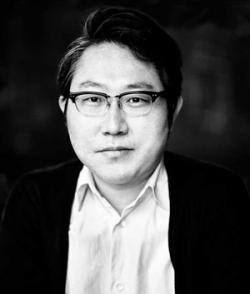 All life on Earth is composed of cells that are wrapped in lipid membranes, and all cells synthesize their own lipids to grow and divide. How the first protocells emerged and, moreover, became the modern cells we know, remains a big mystery in biology. Lipids, especially phospholipids, are incredible molecules that spontaneously form vesicles in dilute aqueous solution and delineate cells by forming a semi-permeable boundary. However, their very ability to form membrane aggregates in diluted solution limits the ability of membranes to grow via an external lipid reservoir – new phospholipids do not need to integrate into a growing membrane, instead, they could form a new bilayer membrane de novo. Additionally, impermeability of phospholipids’ membrane to many solutes means that supplying nutrients necessary for growth externally is challenging prior to the evolution of primitive transports.
All life on Earth is composed of cells that are wrapped in lipid membranes, and all cells synthesize their own lipids to grow and divide. How the first protocells emerged and, moreover, became the modern cells we know, remains a big mystery in biology. Lipids, especially phospholipids, are incredible molecules that spontaneously form vesicles in dilute aqueous solution and delineate cells by forming a semi-permeable boundary. However, their very ability to form membrane aggregates in diluted solution limits the ability of membranes to grow via an external lipid reservoir – new phospholipids do not need to integrate into a growing membrane, instead, they could form a new bilayer membrane de novo. Additionally, impermeability of phospholipids’ membrane to many solutes means that supplying nutrients necessary for growth externally is challenging prior to the evolution of primitive transports.
Principal investigator Yutetsu Kuruma. Photo credit: Nerrisa Escanlar
Thus, the aim of our project is to study how cells can grow and proliferate sustainably despite the challenges posed by the membrane, and thereby build a minimal cell that can propagate.
Our specific approach is to build artificial cells consisting of a simple lipid vesicle containing an in vitro transcription-translation system that can synthesize the enzymes that in turn synthesize phospholipids, starting with a two-carbon feedstock. We will then investigate the membrane’s physicochemical properties as a function of growth.
Our team consists of three PIs specializing in synthetic biology, soft-matter physics, and chemistry. We are trying to understand how the phospholipid intermediates and membrane proteins affect the fundamental properties of membrane rigidity and curvature, and thus susceptibility to division. We are also trying to elucidate how a changing lipid composition alters lipid packing, and hence membrane permeability and access to nutrients. These new insights will give us hints as to how a stably-propagating cell could have emerged near life’s origins, and also provide insights into the fundamental properties of membranes as a biomaterial.
|
HFSP award information Research Grant - Program (RGP0029/2020): Stable propagation of a minimal synthetic cell Principal investigator: Yutetsu Kuruma, X-Star, Japan Agency for Marine-Earth Science and Technology, Kanagawa, Japan (nationality: Republic of Korea) |


































